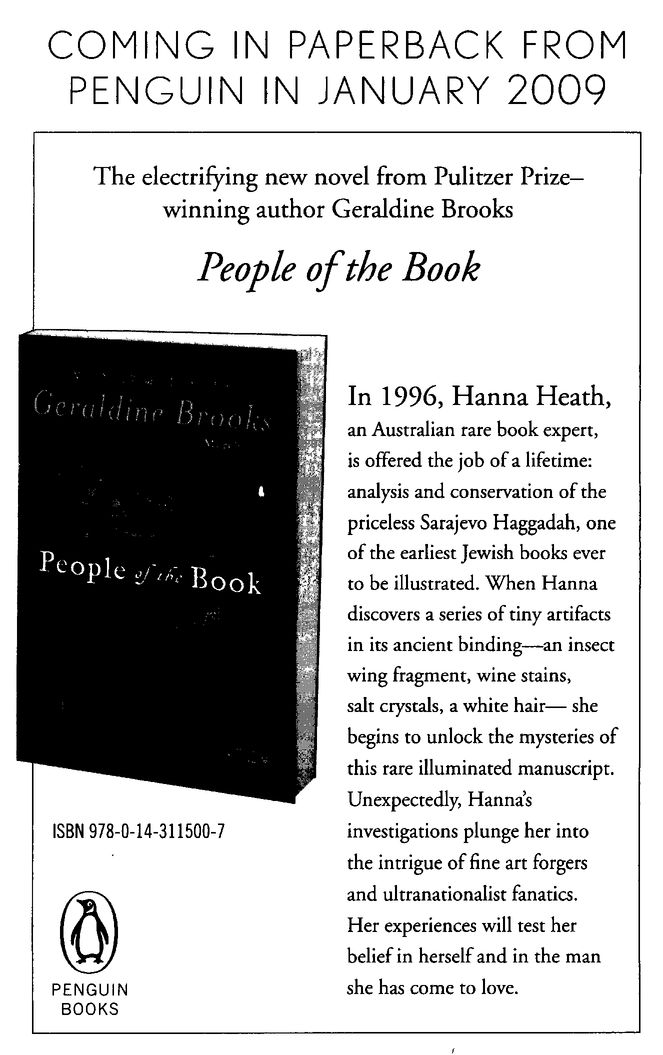QUESTIONS FOR DISCUSSION
1. Throughout the novel, March and Marmee,
although devoted to one another, seem to misunderstand each other
quite a bit and often do not tell each other the complete truth.
Discuss examples of where this happens and how things may have
turned out differently, for better or worse, had they been
completely honest. Are there times when it is best not to tell our
loved ones the truth?
2. The causes of the American Civil War were
multiple and overlapping. What was your opinion of the war when you
first came to the novel, and has it changed at all since reading
March?
3. March’s relationships with both Marmee and
Grace are pivotal in his life. Discuss the differences between
these two relationships and how they help to shape March, his
worldview, and his future. What other people and events were
pivotal in shaping March’s beliefs?
4. Do you think it was the right decision for
March to have supported, financially or morally, the northern
abolitionist John Brown? Brown’s tactics were controversial, but
did the ends justify the means?
5. “If war can ever be said to be just, then this
war is so; it is action for a moral cause, with the most rigorous
of intellectual underpinnings. And yet everywhere I turn, I see
injustice done in the waging of it,” says March (p. 65). Do you
think that March still believes the war is just by the end of the
novel? Why or why not?
6. What is your opinion of March’s enlisting?
Should he have stayed home with his family? How do we decide when
to put our principles ahead of our personal obligations?
7. When Marmee is speaking of her husband’s
enlisting in the army, she makes a very eloquent statement: “A
sacrifice such as his is called noble by the world. But the world
will not help me put back together what war has broken apart” (p.
210). Do her words have resonance in today’s world? How are the
people who fight our wars today perceived? Do you think we pay
enough attention to the families of those in the military? Have our
opinions been influenced at all by the inclusion of women in the
military?
8. The war raged on for several years after
March’s return home. How do you imagine he spent those remaining
years of the war? How do you think his relationship with Marmee
changed? How might it have stayed the same?
For more information about or to order other
Penguin Readers Guides, please e-mail the Penguin Marketing
Department at reading@us.penguingroup.com or write to us at:
Penguin Books Marketing Dept.
Readers Guides
375 Hudson Street
New York, NY 10014-3657
Readers Guides
375 Hudson Street
New York, NY 10014-3657
Please allow 4—6 weeks for delivery.
To access Penguin Readers Guides online, visit
the Penguin Group (USA) Web site at wwwpenguin.com.

FOR MORE ENGAGING HISTORICAL FICTION FROM
GERALDINE BROOKS, LOOK FOR THE

Year of Wonders
When an infected bolt of cloth carries plague
from London to an isolated mountain village, a housemaid named Anna
Frith emerges as an unlikely heroine and healer. Through Anna’s
eyes we follow the story of the plague year, 1666, as her fellow
villagers make an extraordinary choice: convinced by a visionary
young minister they elect to quarantine themselves within the
village boundaries to arrest the spread of the disease. But as
death reaches into every household, faith frays. When villagers
turn from prayers to murderous witch-hunting, Anna must confront
the deaths of her family, the disintegration of her community, and
the lure of illicit love. As she struggles to survive, a year of
plague becomes instead annus mirablilis, a “year of
wonders.”
Inspired by the true story of Eyam, a village in
the rugged hill country of England, Year of Wonders is a
richly detailed evocation of a singular moment in history. Written
with stunning emotional intelligence and introducing “an inspiring
heroine” (The Wall Street Journal), Brooks blends love and
learning, loss and renewal into a spellbinding and unforgettable
read.
“The novel glitters ... a deep imaginative
engagement with how people are changed by catastrophe.”
—The New Yorker
“Year of Wonders is a vividly imagined
and strangely consoling tale of hope in a time of despair.”
—O, The Oprah Magazine
“Beautiful ... [a] deeply involving
story.”
—Newsday
ISBN 0-14-200143-0